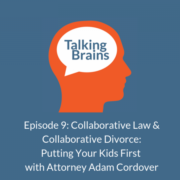Will I Get Custody of My Kids?
Every parent going through a divorce fears that they will not receive sufficient time or custody with their children. For parents who are used to seeing their children whenever they please, the thought of a third party ordering a schedule by which they have to abide can be nerve-wracking.
Traditional Divorce Court – Judge Decides Custody
If you decide to litigate your divorce in court, you will leave your destiny to a judge who only receives a snapshot glance at your life and parenting abilities. Outside factors will impact your case like the attorneys’ trial abilities, the mood and beliefs of the judge who is assigned to your case, the opinion of the experts which may be determined by which party is paying him, and how the parties and witnesses present themselves in court.
So how do you ensure a positive result in your case? Keep the decision in your own hands. Divorces do not have to occur in court, and actually, most do not. There are several courtless divorce options that are available that leave these important decisions to you and your spouse.
Courtless Options – You Decide Custody
Mediation is a process by which a neutral third party facilitates negotiations between divorcing spouses. The mediator does not act as a decision-maker. Instead, she discusses settlement options with both parties, pointing out issues where the parties are already in agreement, and assisting them to reach agreements on issues that are more difficult.
In a collaborative divorce, a team of professionals assists the couple in reaching an agreement that meets both parties’ most important interests. The team usually consists of attorneys, a mental health professional, and a financial professional. The attorneys pledge to disqualify themselves if the parties are unable to reach an agreement and decide to litigate. This keeps the team focused on settlement rather than litigation.
Cooperative divorce is similar to collaborative divorce in that it happens through a series of meetings with appropriate professionals. However, there is no disqualification pledge. Because litigation remains an option on the table, cooperative divorce can oftentimes feel more adversarial than collaborative divorce.
Divorce is a stressful, scary time. Don’t leave these important decisions to someone else who doesn’t know you or your family. By choosing a courtless option for your divorce, you ensure that you will have the right custody arrangement for your changing family.
Adam B. Cordover is a leading collaborative family law attorney, mediator, and trainer. He is co-author of an upcoming American Bar Association Book on collaborative practice.





